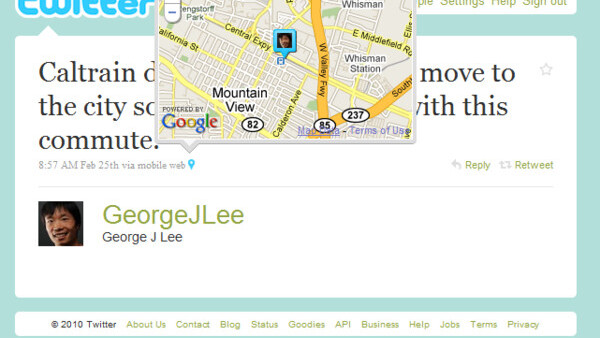
![]() [Editor of the Federated Search Blog Sol Lederman’s note: Charles Knight’s claim to fame is that, in the three years that he was editor forAltSearchEngines, Charles posted some 4,000 times on alternative search engines. Wow! Charles is nowsearch editor for TheNextWeb. Charles and I had a number of conversations over the past couple of years regarding federated search and alternative search engines. Charles kindly republished some of my Federated Search Blog postings and I even wrote a primer on federated search for Charles’ readers. I had the pleasure of interviewing Charles about the alternative search world.]
[Editor of the Federated Search Blog Sol Lederman’s note: Charles Knight’s claim to fame is that, in the three years that he was editor forAltSearchEngines, Charles posted some 4,000 times on alternative search engines. Wow! Charles is nowsearch editor for TheNextWeb. Charles and I had a number of conversations over the past couple of years regarding federated search and alternative search engines. Charles kindly republished some of my Federated Search Blog postings and I even wrote a primer on federated search for Charles’ readers. I had the pleasure of interviewing Charles about the alternative search world.]
- What inspired you to start AltSearchEngines three years ago?
I actually started out doing Search Engine Optimization (SEO). It’s fairly straightforward, you study Google’s practices and then apply them to a client’s website, and then another, and then another.
Along the way I discovered that Google, Yahoo!, MSN, AOL and Ask.com were not the only search engines. I stumbled upon ChaCha, and then Quintura, then KartOO and very quickly I was hooked. The beauty and diversity of each alternative (alternative to Google / the Big 3) search engine just made me want to find more of them. I have always been a collector at heart.
Then my OCD kicked in and I set a personal goal of finding 100 search engines by the end of 2006, and I just made it. I sent that list to Richard MacManus at ReadWriteWeb and in January 2007 it was the most popular post that month. He asked me to update it monthly, and by June he had created AltSearchEngines as one of his network blogs..
- What inspired you to stop blogging at ASE and join TheNextWeb?
As great as the three years at AltSearchEngines were, it had reached a plateau. There are only so many people interested in a daily dose of niche search engines. Not only that, but after 4,000 posts, I really felt that we had found most of them. TheNextWeb offered a much larger audience, and a much broader range of topics (”All Things Search”).
- What did you do before ASE?
See #1. I know nothing about programming. I was a Liberal Arts major (Rhetoric), which is a great asset. To think beyond Google it actually helps to not be an engineer!
- What’s your favorite alternative search engine?
My favorite alt search engine is TagGalaxy.de. It was designed by a German graduate student for a school project! No VC funding, just pure creativity. It is wonderful.
- What advice would you give to search engine bloggers?
Actually my advice was for the search engine developers. “We must all hang together or assuredly we shall all hang separately.” There are too many sites, too many names, too many logos. I have always advocated cooperation, even to the point of a common homepage, but Siri and the Virtual Personal Assistants (VPA) have changed all of that now.
- What do you see as the future of federated search?
The answer to this question is really, “what does Siri see as the future of federated search?” Of course I mean Siri or any other Virtual Assistants to come. These VPA will be given tasks by users, and they will go wherever is necessary to gather the information to complete their tasks. If the necessary information is locked within the Deep Web or requires some form of registration that the VPA cannot access, it will either go elsewhere (everyone loses), or it will simply report the problem to the human user. The federated search sites that cooperate with the VPA will be the ones that get used.
- Which are your favorite search technology blogs?
Favorite blogs? TheNextWeb, the AltSearchEngines archives, ReadWriteWeb, Pandia, Phil Bradley, ResourceShelf, and of course the Federated Search Blog.
- What are you most proud of as editor of ASE?
I am most proud of the two AltSearchEngines conferences that we hosted in San Francisco. I was tired of being asked to pay to hear major search engine VPs talk about themselves and decided that the smaller search engines must simply have their own conferences, and so we did.
- What do you hope to achieve as editor of TNW/Search?
As the editor of a brand new “channel” (as they call it) with a brand new location, I am focused on letting everyone that I have ever met in the past three years know to link, bookmark, and subscribe to https://thenextweb.com/search !!
- What question would you like to answer that I didn’t ask you?
Can Google be defeated? The answer is yes, and it is, as I have always said, primarily in the hands of the vertical search engines (VSE). That is not to slight federated search or any other technology, in fact it requires those technologies to build a competent VPA.
Once a user asks their VPA (they will have customizable ‘personalities’) to perform a task, the VPA will go to whatever VSE it needs to to complete the task, different ones for different needs. Therefore, it is no longer necessary for them to aggregate or even market themselves, the VPA will find them and use the best ones.
If it needs a general web search, then it may query Google for you. You will never need to go to Google again. After all, if your VPA will check there, why would you bother? The VPA will also never click on an ad, and that is not good for Google’s business model. In just a few years we will marvel at just how “dumb” the current web search engines are, after all, they don’t DO anything. That is why Siri calls itself a “Do Engine.” Let him who has ears, hear!
Charles, thank you for your great insights on alternative search!
From the original post on The Federated Search blog.
Get the TNW newsletter
Get the most important tech news in your inbox each week.




